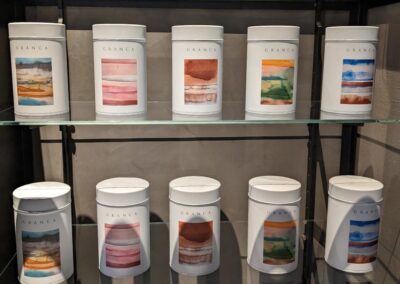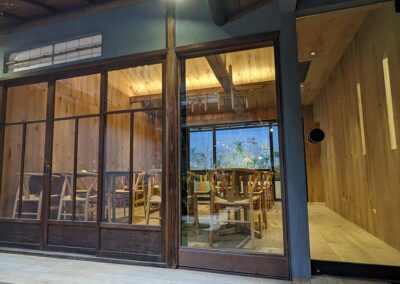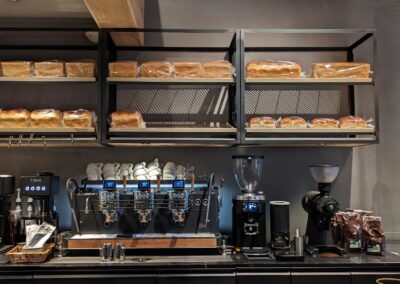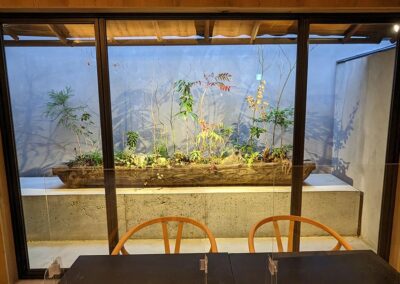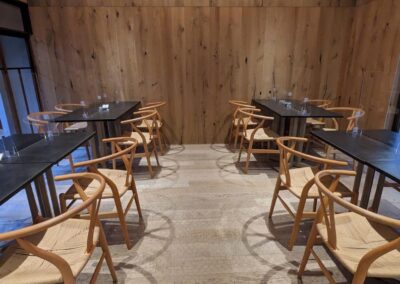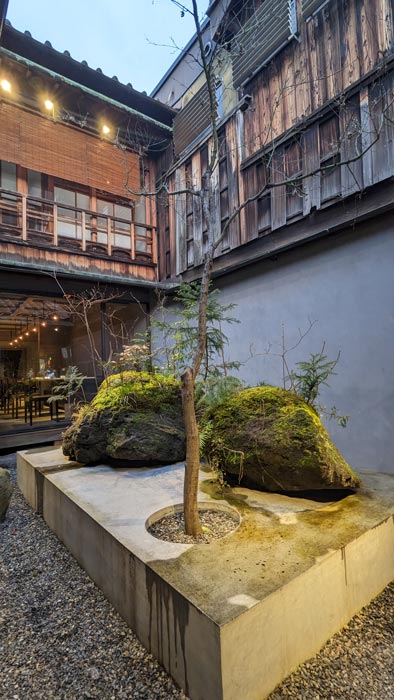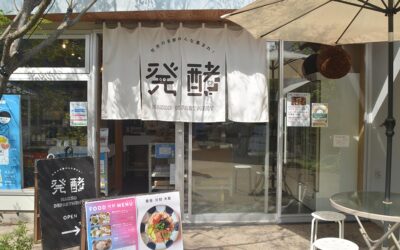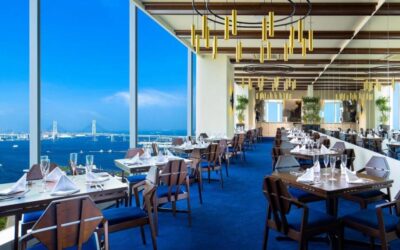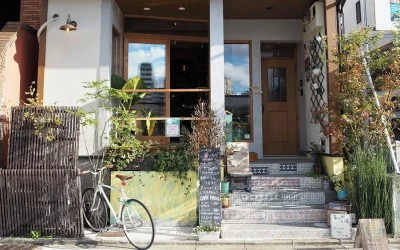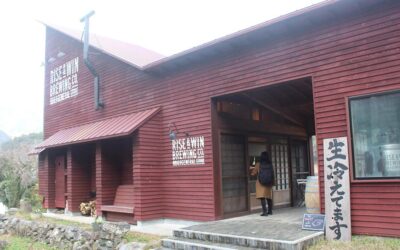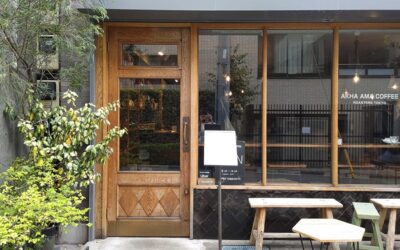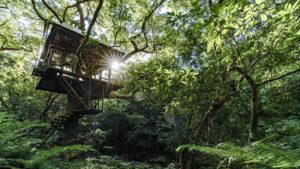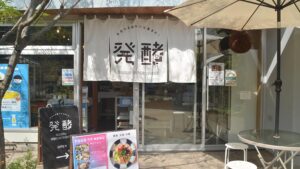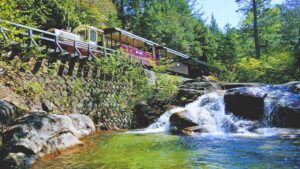Ogawa Coffee is one of the pioneers who brought fair trade coffee to Japan. They began around 2004 when the term “fair trade” wasn’t even heard of among the Japanese population. Not only that, through their coffee, Ogawa Coffee has positive impacts in both social and environmental aspects, from providing shade-grown coffee that supports biodiversity to supporting education and health welfare of developing countries.
Ogawa Coffee is a pioneer in the success in promoting coffee culture in Kyoto. Coffee saw its popularity boom in Japan around the 1960s, and today, Kyoto Prefecture consumes the most coffee products, which may sound surprising considering Kyoto’s long history with tea. But precisely because of Ogawa Coffee’s experience in the industry, it is also sensitive to the topics surrounding coffee production.
Ogawa Coffee opened the Ogawa Coffee Sakaimachi Nishiki Cafe in February 2022, aiming to be an ethical coffee shop that will be responsible towards the environment and society. Of course, this is not Ogawa’s first attempt at a sustainable cafe, because Ogawa has long promoted fair trade and organic coffee, from dedicating the month of May for Fair Trade Month to supporting the welfare of coffee-producer communities.
However, the Sakaimachi Nishiki Cafe takes its coffee up a notch. As you approach the entrance, you see a line of white cans of coffee beans. They are Ogawa Coffee’s ethical GRANCA series, a handpicked series of five unique coffee that are organic, international fair trade certified, Bird-friendly certified, and participates in the Orangutans Coffee Project. While we may be familiar with the terms “organic” and “fair trade,” the latter two have significant impacts on biodiversity.
The Bird-friendly certification for coffee approves of shade-grown coffee. Shade trees protect coffee fruits from extreme heat and harm from wind, while the trees allow migratory birds to coexist and feed on pests that threaten the fruits. Orangutan Coffee Project is particular to Indonesia, where Ogawa Coffee contributes to protecting the environment critical to coffee production, but more urgently to preserving the habitat for the critically endangered Sumatran and Tapanuli Orangutans.
Besides the above contributions, the brand has also made its Ogawa Coffee SDGs Declaration (which includes fair trade and organic commitments). They actively participate in social good, including supporting activities to improve health conditions for women working in coffee production regions through Grounds for Health. A visit to any Ogawa Coffee cafe is highly recommended on 21st of every month, as that is when they will hold the “Mari Rouge Day” in support of One of Love Project to improve the educational environment of children in developing countries.
The Sakaimachi Nishiki Cafe also makes an effort to reduce waste. Customers are welcome to bring their personal bottles to fill. If any customer has a need, they offer paper cups at a cost. Are you interested in buying coffee beans? You can purchase their GRANCA series by weight. Highly recommend you bring a container!
Excerpt from original publish on Zenbird.Media.

